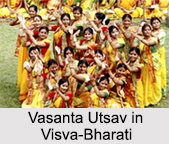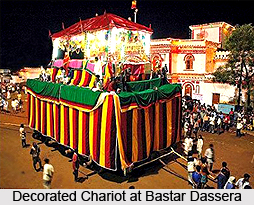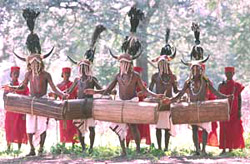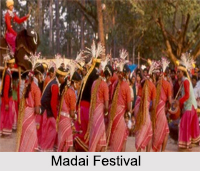No Hindu custom is considered so important as the one going by the name of suryanamaskaram. Generally the custom intended to worship the sun. The importance of the observance lies in the prostration or alternate standing and falling flat on the ground as implied in the name itself.
History tells that the Aryan ancestors of the Hindus worshipped the sun as the creator, the nourisher and the destroyer of everything in the universe. Hindu Upanishads tell that the sun is `the-all` in the universe. Hence it stands to reason that the Hindus are expected to worship the sun in a befitting manner. But the custom of prostration needs examination and explanation as well.
Indian super-scientists were of opinion that the sun radiated a force, which divided itself into seven kinds of forces, and this in turn symbolically represented as the seven horses of the sun. These seven forces are of vital importance to men, animals and plants and they radiate early in the morning very gently. The radiating force may be compared to the milk of animals when their young ones are very tender. Just as the milk thickens with the growth of the calf, these forces become stronger and stronger with the rising sun. This change happens not because the sun is sending out ever changing forces, but because of the position of the earth with reference to the sun and the other planets.
The ancient sages had found out the exact hours when the atmosphere and the magnetic conditions were most favourable for specific purposes. They did it by the help of their yogic powers. They considered the early morning, the noon and the hour of sunset most suitable for men to recoup and charge certain dynamos in their system, to wit, the mental and the will dynamos.
To control the mind and store the mental dynamo with the solar force, the body should not be very active. In fact it should be sufficiently exhausted. With this end prostration is prescribed. To create a receiver of the force the sun is visualized by imagination and to secure the concentration of the wandering and ever restless mind, certain mantrams or incantations are prescribed.
Some believe that the prostration not only gives sufficient exercise for the man performing it, but it also serves the purpose of a valve in receiving the vital force and passing it on to the reservoir in the body.





